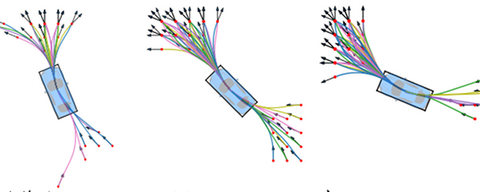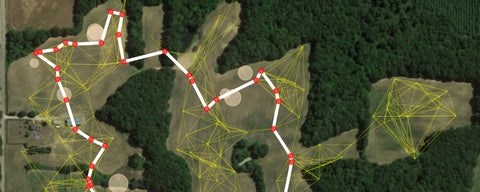The Autonomous Systems Lab (ASL) develops algorithms and control methods for autonomous systems operating in uncertain environments. Systems include autonomous ground and aerial vehicles, multi-robot systems, autonomous driving, and robots that interact with humans.
The following are some current areas of focus:
- Robot motion planning: methods for planning robot motion to efficiently complete complex tasks.
- Learning planning policies: learning robot behaviors and policies through repeated task executions.
- Planning under uncertainty: planning and sensing for operation in unknown environments.
- Persistent monitoring and scene reconstruction: monitoring and building real-time maps for complex 3D environments.
- Future transportation systems: coordinating and dispatching vehicles for ride-sharing and urban transportation.
- Active preference learning: coordinating robots to work with humans in task specification and collaborative assembly.
- Distributed and submodular optimization: collective decision making strategies for objectives that exhibit diminishing returns.
- Autonomous driving: Generating safe and efficient motion in real-world environments.
- Other areas of interest include dynamic vehicle routing, informative path planning, task allocation, formation control, consensus/rendezvous and ocean sampling.
News
Sunday, January 8, 2023
Recently Accepted Papers to CDC 2022
We recently presented the following papers at the IEEE Conference on Decision and Control held in Cancun, Mexico in December, 2022.
- A. Downie, B. Gharesifard, and S. L. Smith. A Programming Approach for Worst-case Studies in Distributed Submodular Maximization. [DOI] [PDF]
- C. Wang, Y. Meng, S. L. Smith, and J. Liu. Data-Driven Learning of Safety-Critical Control with Stochastic Control Barrier Functions. [DOI] [arXiv]
- F. Wang, C. Nielsen, and S. L. Smith. A Pursuit Evasion Approach for Avoiding an Inattentive Human in the Presence of a Static Obstacle. [DOI] [PDF]
- R. Li, J. W. Simpson-Porco, and S. L. Smith. Data-Driven Model Predictive Control for Linear Time-Periodic Systems. [DOI] [arXiv]
- S. Dutta, N. Wilde, and S. L. Smith. Informative Path Planning in Random Fields via Mixed Integer Programming. [DOI] [arXiv]
- Y. Cai, A. Dahiya, N. Wilde, and S. L. Smith. Scheduling Operator Assistance for Shared Autonomy in Multi-Robot Teams. [DOI] [PDF] [arXiv]
- A. Downie, B. Gharesifard, and S. L. Smith. Optimistic Greedy Strategies for Partially Known Submodular Functions. [DOI] [arXiv]
Friday, April 8, 2022
Recently Accepted Papers
- Our paper on Safe swerve maneuvers in autonomous driving appeared in IEEE Open Journal on Intelligent Transportation Systems.
- Our paper on Allocating operators for multi-robot assistance appeared in IEEE Transactions on Control of Network Systems.
- Our paper on learning submodular objectives for team orienteering appeared in IEEE Robotics and Automation Letters.
Thursday, February 3, 2022
Congratulations Alex!
Alex completed his PhD degree! Congratulations!




